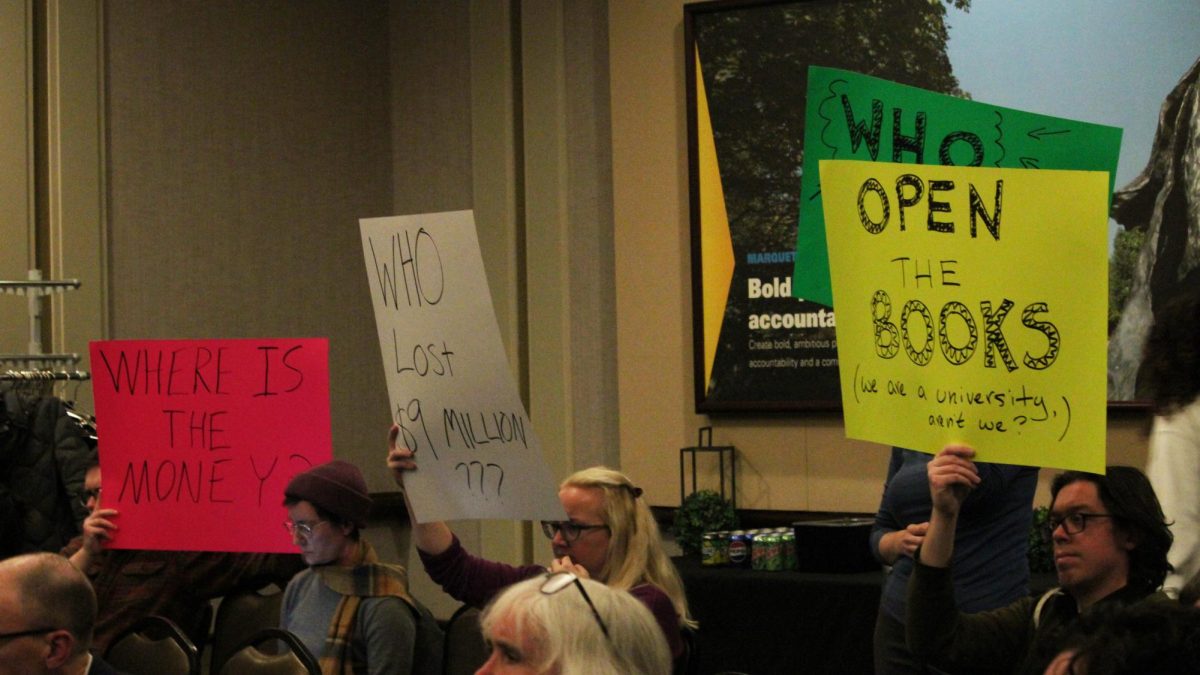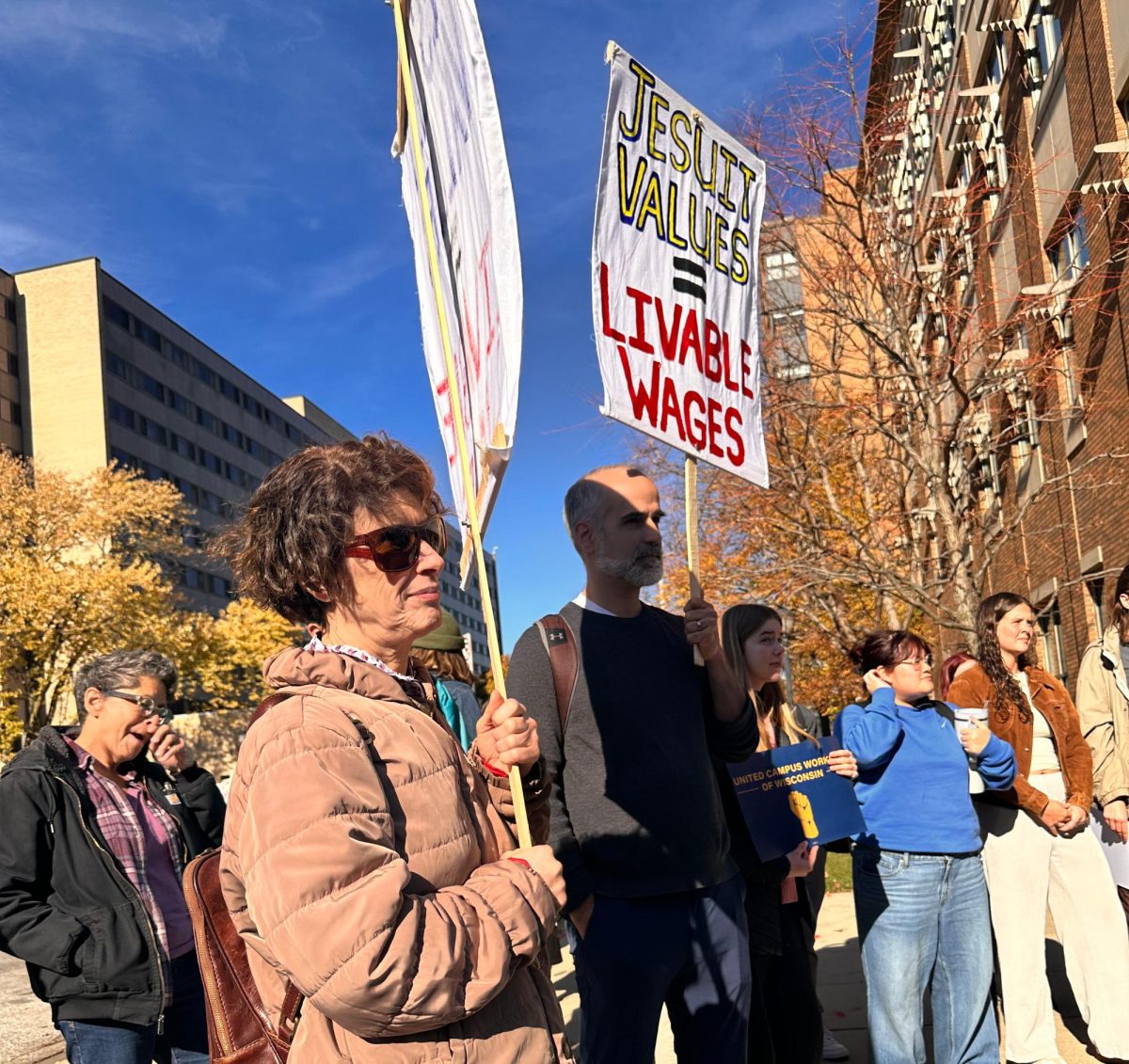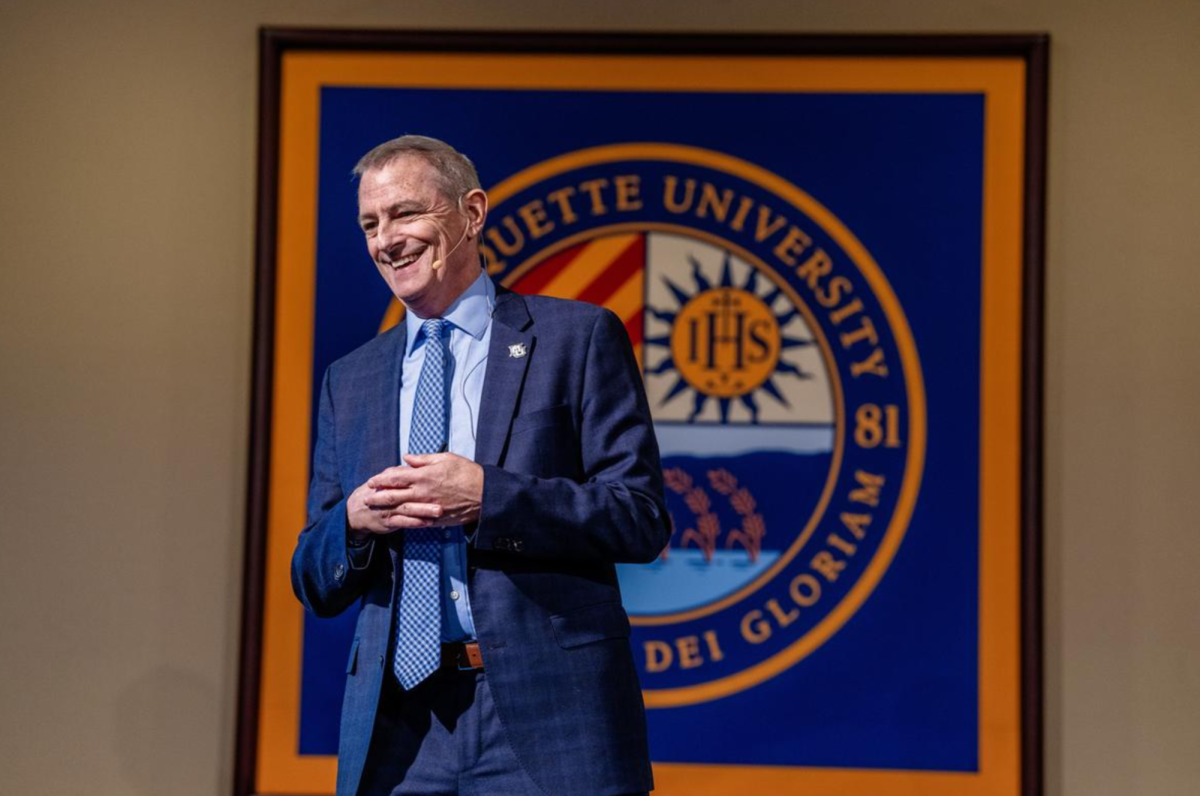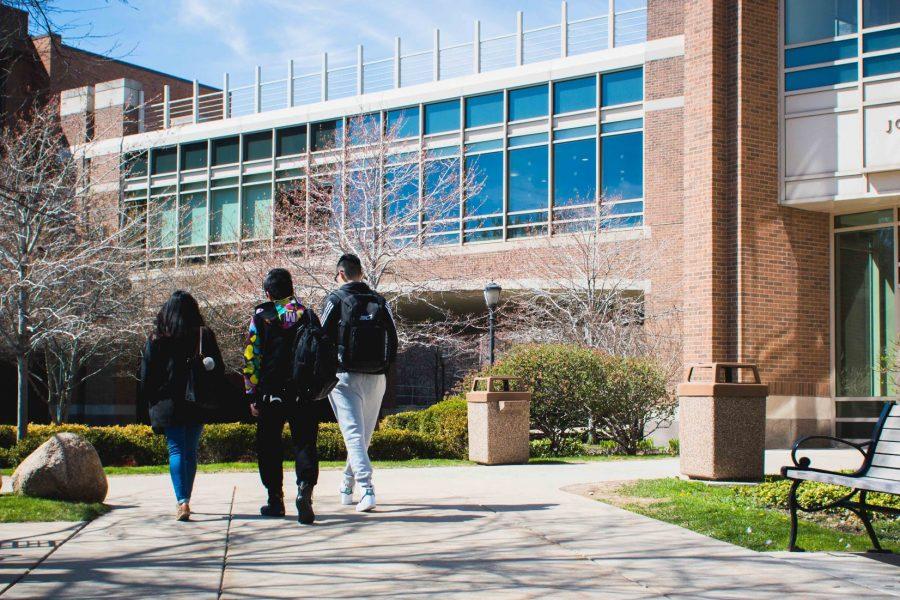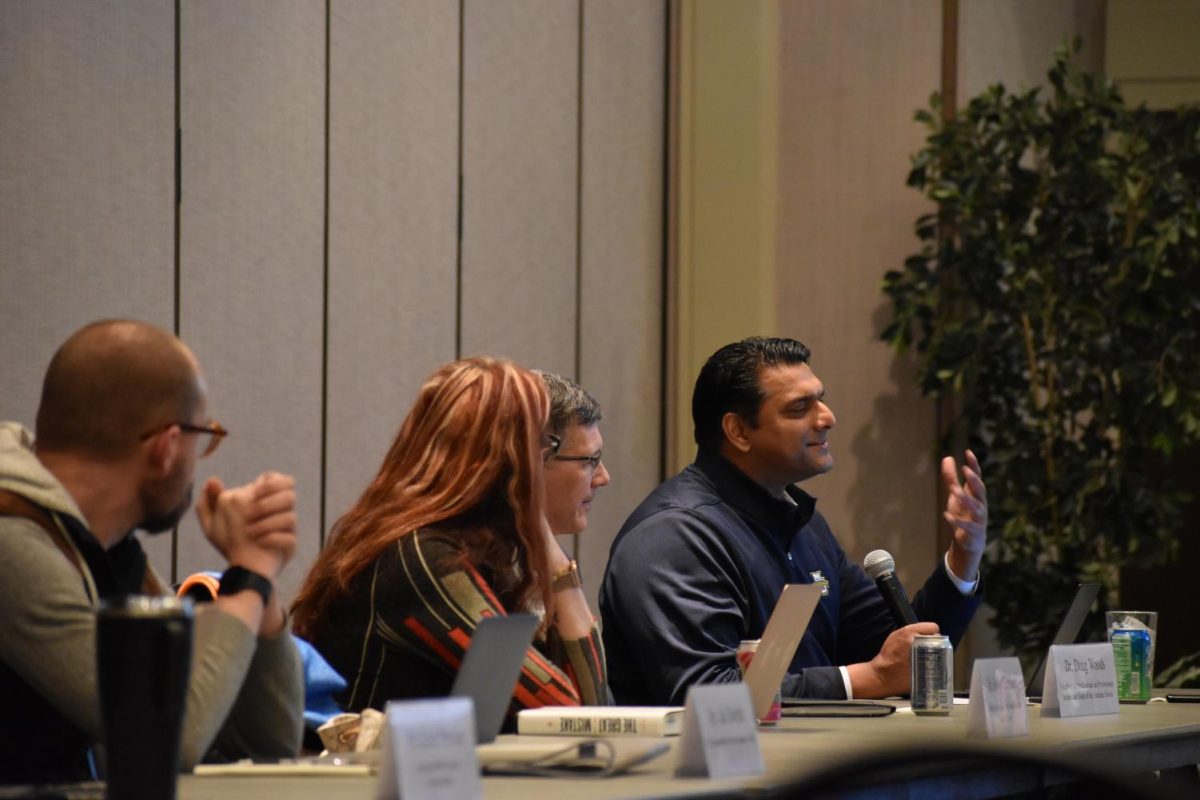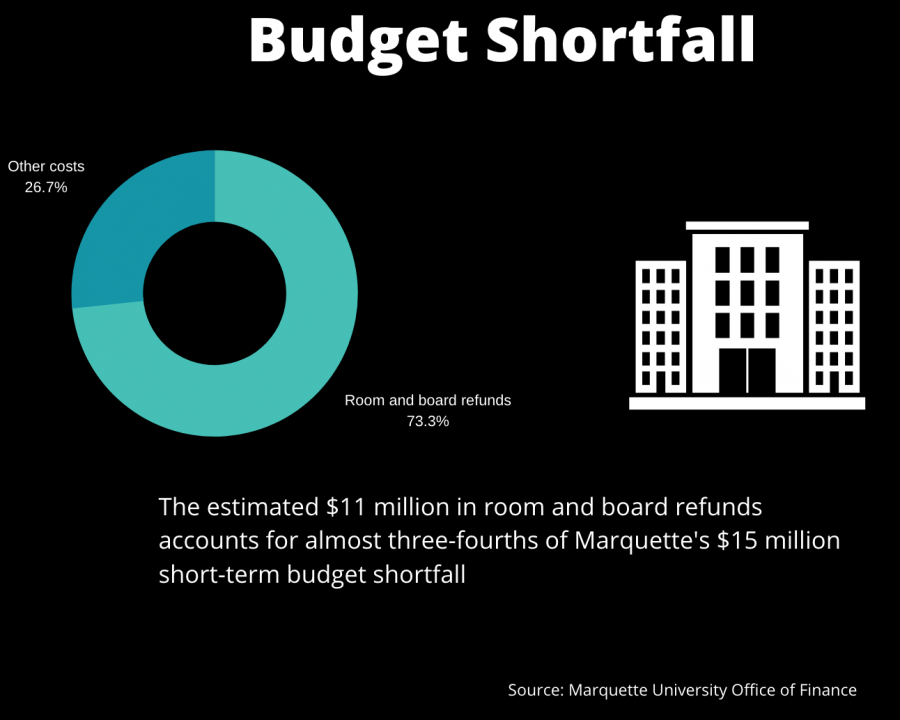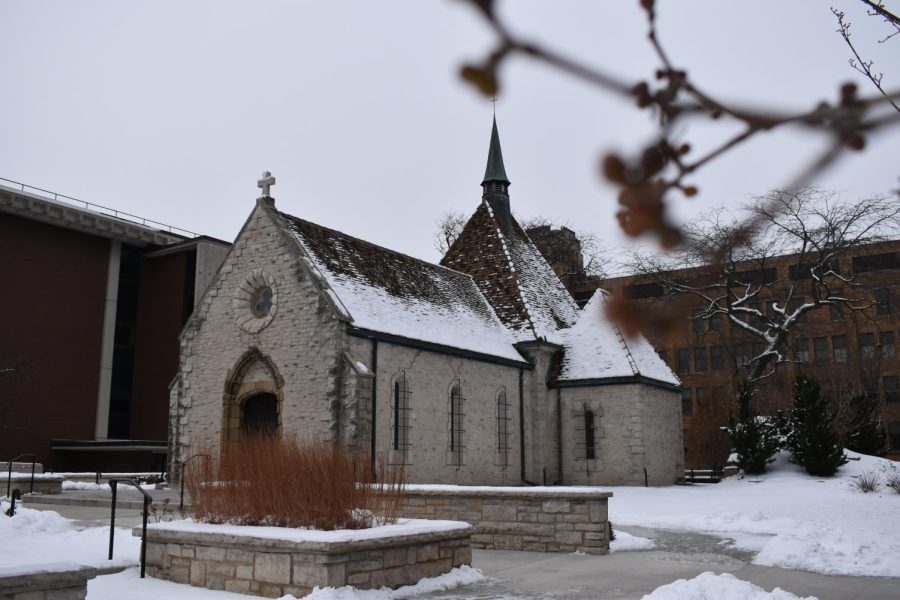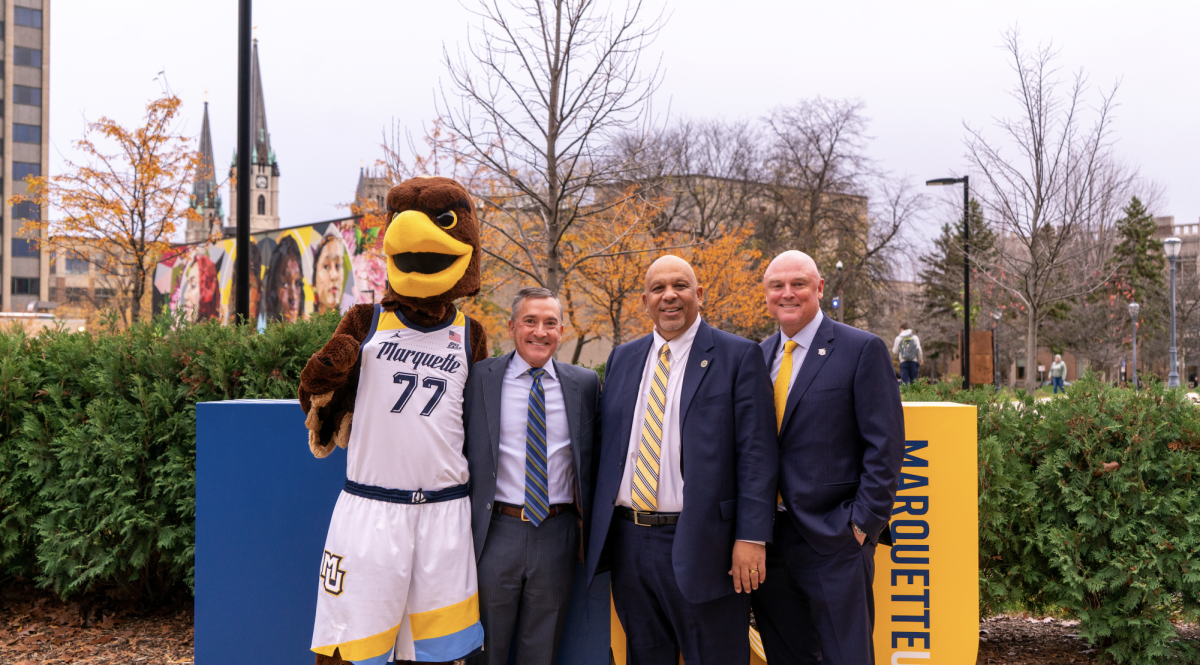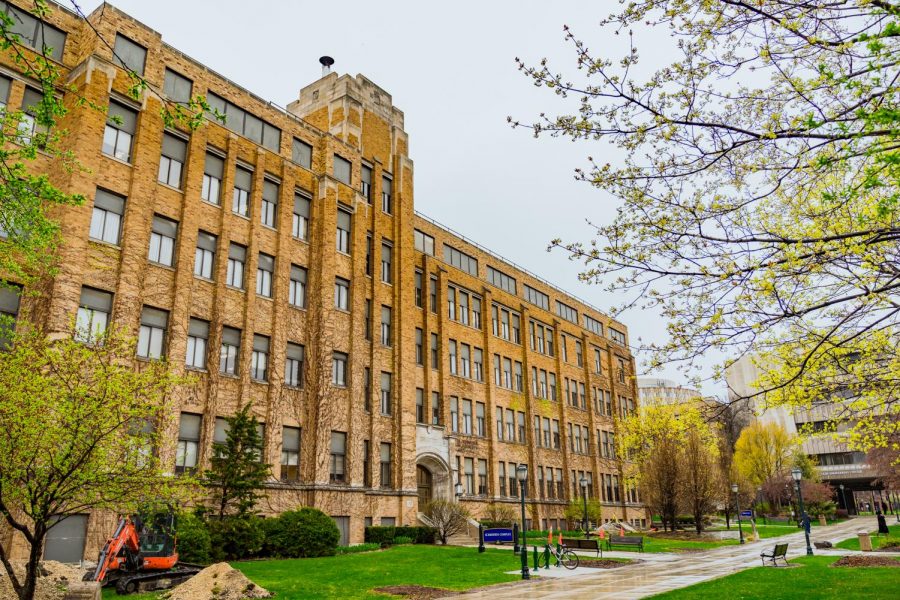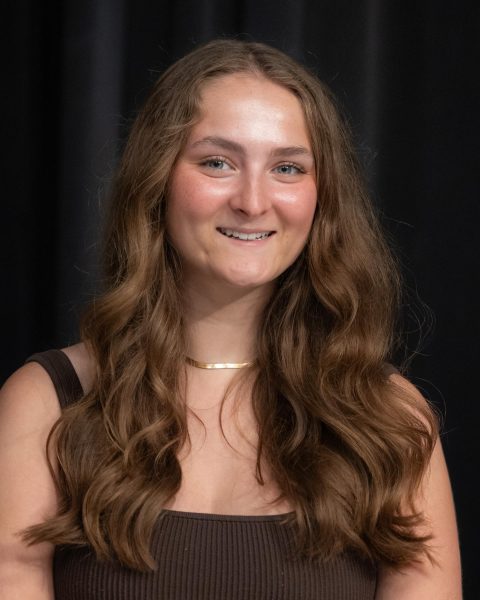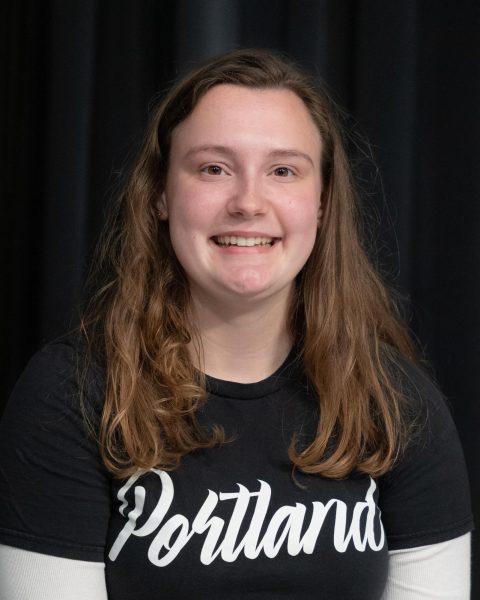Provost Kimo Ah Yun said the university is operating under a current budget shortfall that is estimated between $9 million and $9.5 million.
Members of the Marquette community were in the back of the AMU ballrooms during the academic senate meeting with signs saying “Open the Books,” “Where’s the Money” and others in reference to the university’s financial situation. The same situation was echoed on the Teams call of the meeting, with some participants changing their profile pictures to reflect the same message.
Ah Yun said part of the shortfall is due to factors such as inflation and lower enrollment.
The university has committed to a 3% operating margin that is mandated by the Board of Trustees. The 3% can be used for things such as the endowment, debt repayment and capital projects.
Ah Yun said they are using the 3% for investments going towards the “good” of the university, including the new College of Nursing building, the new Recreation and Wellness Center and expanding enrollment markets to outside of the Midwest.
“However, … enrollment initiatives, nursing and health and wellness should have been budgeted for. That should not be coming out of the 3%,” Michelle Mynlieff, professor and chair of biological sciences, said. “An issue that has been brought up is inflation being a major driver, but our biggest budget item is personnel, and our raises don’t meet inflation.” Ah Yun said that he relayed the news of the budget shortfall on behalf of the executive leadership team to the college deans.
The University Faculty Committee on Budget and Financial Planning was never informed of the budget shortfall prior to the University Academic Senate meeting Dec. 11. The sub–committee of the University Academic Senate was approved two years ago in an effort to improve shared governance by allowing for faculty input on how the university’s budget and financial planning would affect academic affairs.
“The University Academic Senate has a financial oversight committee. We expect to get a fuller picture of what actually happened with the budget gap from that committee. And we hope to have that picture in the new year,” Phillip Rocco, professor of political science and UAS senator, said.
The university’s statement said that cost control measures for the remainder of the fiscal year are up to leaders in administrative and academic spaces.
University statement on budget shortfall:
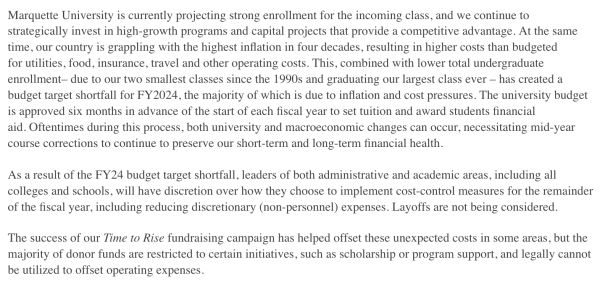
Faculty members in the College of Arts & Sciences were notified last Friday afternoon, Dec. 8, in an email that faculty travel funding would be cut.
“Due to budgetary concerns, the College will not be providing another round of Faculty Development Funding for travel during the remainder of this fiscal year. I sincerely apologize for this decision, and I recognize how disappointing and upsetting it is for those of you who were expecting this round of funding. I am hopeful that travel funding will once again be available for the next fiscal year beginning July 1,” Ed Blumenthal, associate dean of research in the College of Arts & Sciences, said in an email to college faculty.
Ben Pladek, associate professor and director of graduate studies of English, said that the timing of the announcement leaves faculty that have committed to conferences in a tough situation.
“Being told all of your funding has disappeared with no explanation, no consultation, and no oversight is a borderline autocratic move,” Pladek said at the Academic Senate meeting.
Paula Papenek, professor and director of exercise sciences, said their major received a 10% budget cut in operating costs last year, so she questions why there was a 25% increase in exercise science enrollment after that decision.
“Therefore in students, I’m operating at a 35% shortfall independent of inflation. Now you’re asking for a 20% cut in my operating. That means I have more students with a 50% budget cut,” Papenek said. “This is not sustainable. I cannot ethically and legally train students to go out and work in clinics and do so adequately.”
Papenek questioned Ah Yun and asked how she is supposed to “ethically teach and train” students after more cuts to her program.
“One of the things that I’ve asked the deans to do, which I would say is how do we realign resources over the long term to be able to best support the growing programs,” Ah Yun said.
This story was written by Julia Abuzzahab and Megan Woolard. They can be reached at [email protected] and [email protected]



